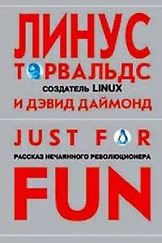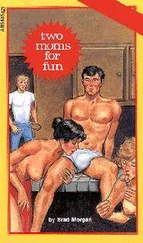And the same is true of Linus the person. Things change, and claiming that this isn't so doesn't change the facts. Linux is not the same movement it was five years ago, and Linus isn't the same person he was back then. And part of what has made doing Linux so very interesting to me has been exactly the fact that it hasn't been the same, and that new issues have continuously kept coming up. And they haven't been just technological issues, but issues involving how the whole meaning of Linux changes in the face of success. Life would be boring otherwise.
So instead of using the word "spoiled," I'd prefer to just say that commercial success has made both Linux and me "different." I'd hesitate to say "grown up" -- I think, for me, having three kids made far more of a difference that way -- but simply different. Better, in many ways, but also less pure. Linux used to be just for technical people, and a safe haven for geeks. A bastion of purity, where technology mattered and little else.
These days that is not true anymore. Linux still has the strong technical background, but having millions of users makes everybody very aware of the fact that you have to be a lot more careful about what you do. Backward compatibility is suddenly a factor -- and some day, twenty years from now, somebody will come along, say that enough is enough, and start his own operating system called "Fredix." [5] Or "Diannix," as the case may be. In another twenty years, hopefully computer science will have progressed past the current male-dominated scene it is now....
Without all the historical baggage. And that's exactly as it should be.
But what makes me inordinately proud is that even when "Fredix" comes along, things won't be the same anymore. If nothing else, what Linux has done is to make people aware of a new way of doing things, of how open source actually enables people to build on the work done by others. Open source has been around for a long time, but what Linux did was to move it into the general consciousness. So when Fredix comes along, it won't have to start from scratch.
And thus, the world has become a slightly better place.
Nearly a year after we started working on this book, Linus and I paid a Friday night visit to the car racing/batting cage place where we had competed with each other months earlier. This time, Linus clobbered me at both activities: He drove faster and made better hits. Later, over Turkish food, I blamed my lousy performance on a particularly frustrating day at work.
He looked up and said: "Well, you've got to hang in there for three more months."
"Why?"
"Isn't that when you vest your first chunk of stock options?"
The reason I bring this up is because the night of our previous competition at the car racing/batting cage place, Linus confessed that because of his poor memory, he regularly had to ask Tove to remind him of his phone numbers. Suddenly he now remembers somebody else's vesting schedule, and he can rattle off where we were when I first mentioned it to him. A year ago he seemed to delight in the role of an absent-minded professor, fuzzy about the details of anything less significant than Super-String Theory or the memory capacity of his earliest computers. Now he is incredibly tuned in.
Back in January we sat in my old hot tub and I joked about the Marin Historical Commission bugging me to donate it to their museum. In August he casually says, "Hey, when are you going to donate that hot tub?" He doesn't have to consult an electronic device to remember the dates when Avuton will be visiting. He is plugged into the personal details of friends and co-workers in a way he didn't seem to be a year earlier. In fact, he even knows what's going on with my friends and co-workers. And for a fellow whose first words tome on the subject were, "Actually, I don't remember much of my childhood," he suddenly seems to have conjured up the memories: "Did I tellyou how embarrassed I was when my mother wanted me toask my grandfather to give me the extra 100 FM I needed to buy my first watch?"
The clarity thing was just one way Linus seemed to have changed over the course of an important year in his life. There were little things. In November, we took the family road trip to Los Angeles that provided the backdrop for the "Meaning of Life" preface, partly because the Torvaldses were invited to stay at the Brentwood home of the Finnish Consulate General. Before the trip, Linus was glazed-eyed as he scanned the wine counter of a Santa Clara Safeway. "Help me pick out wine as a gift," he said. "I know nothing about wine." Ten months later he knows which of two similar cabernets we should choose from the Bodega Bay Lodge minibar, to drink while watching an in-room action movie. I catch him swirling his wine before drinking.
And then there's the exercise thing. On my first visit to Linus's home, he seemed to have a typical geek-like cavalier approach to his body and physical well-being, the "my-body's-just-there-to-carry-around-my-brilliant-mind" philosophy. Linus even seemed to take pride in the fact that he never exercised. Tove obviously felt differently. Her karate trophies lined a full bookcase, and her aerobics videos rested on the television set. And it seemed to be a point of contention. "Maybe in five years some doctor will tell me I'll have to lose weight or something," Linus said at the time.
I like to exercise and figured it should be a main component of our outings. I wanted to introduce him to surfing, but it made sense to start out with boogie-boarding. We drove over to Half Moon Bay one afternoon in early May, rented wet suits and boards, and Linus protested heavily at the thought of wading into the chilly waters of the Pacific, even in a wet suit. But within minutes something amazing happened: He delighted in riding the waves. "This is great," he enthused like a five-year old at one point, slapping me a high five. Of course, about fifteen minutes later he developed a nasty leg cramp-from being so out of shape, he reasoned and had to stop. (When the cramp hit, he just sat there in the white water, apparently unable to get up, as waves washed over him. My first thought was: "Oh fuck. I'll kill this guy, I'll have millions of nerds on my case.")
He looked forward to everything we did during the reporting phase of this book: playing tennis, racing each other at swimming, doing the scary amusements at Great America, driving golf balls. It got to the point at which he became less interested in sitting around talking into my tape recorder than he was in whatever activity I had arranged. The mud baths, hiking up Mt. Tamalpais, shooting pool, whatever. "I could do this on a regular basis," he said, sweating heavily after playing tennis with me near my home. That time he borrowed both a racquet and running shoes. Afterward, he kept his new pair of running shoes in the trunk of his car, just in case.
Have you ever lain back on a warm summer's night, looking up at the stars, and really wondered why you are here? What is your place in things, and what are you supposed to do with your life?
Yeah, well, neither have I.
Yet I ended up having a theory about Life, The Universe, and Everything -- or at least the subset called "Life." You were introduced to this theory in the preface of this book. And since you've gotten this far, I might as well explain myself a little more.
My theory didn't come about while staring up at the stars, immersed in wonder over the immenseness of it all on a clear night. It came about while I was preparing for a speech. When you become well known for one thing, people just assume you can be trusted to generate brilliant insight into unrelated bodies of knowledge that have been mystifying humankind for millions of years. And they want you to share those insights before a herd of perfect strangers.
Читать дальше












